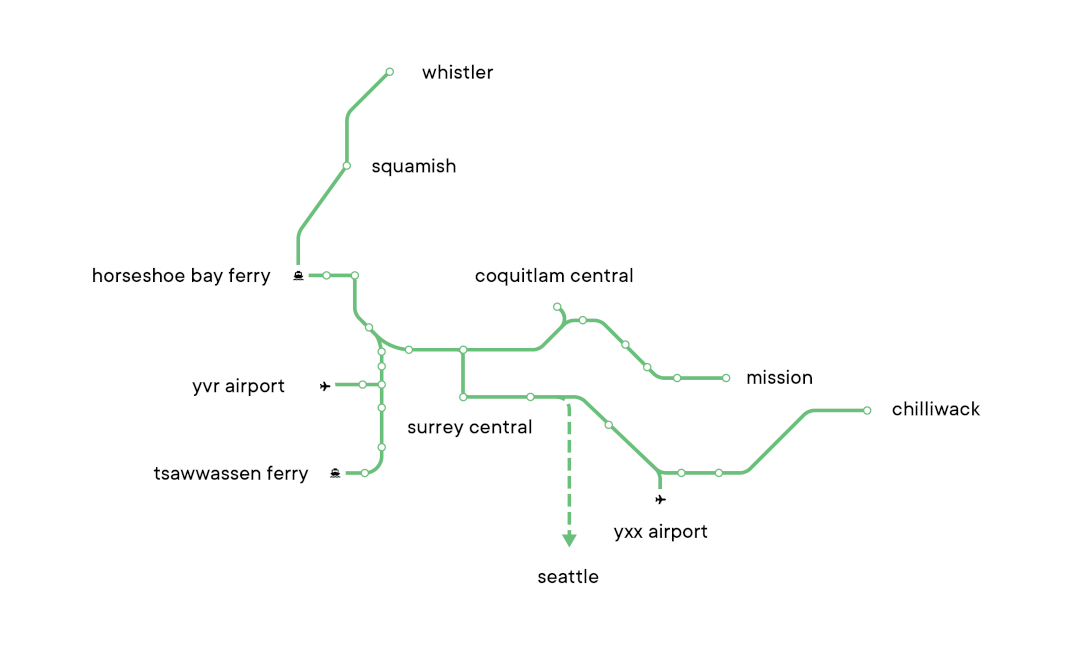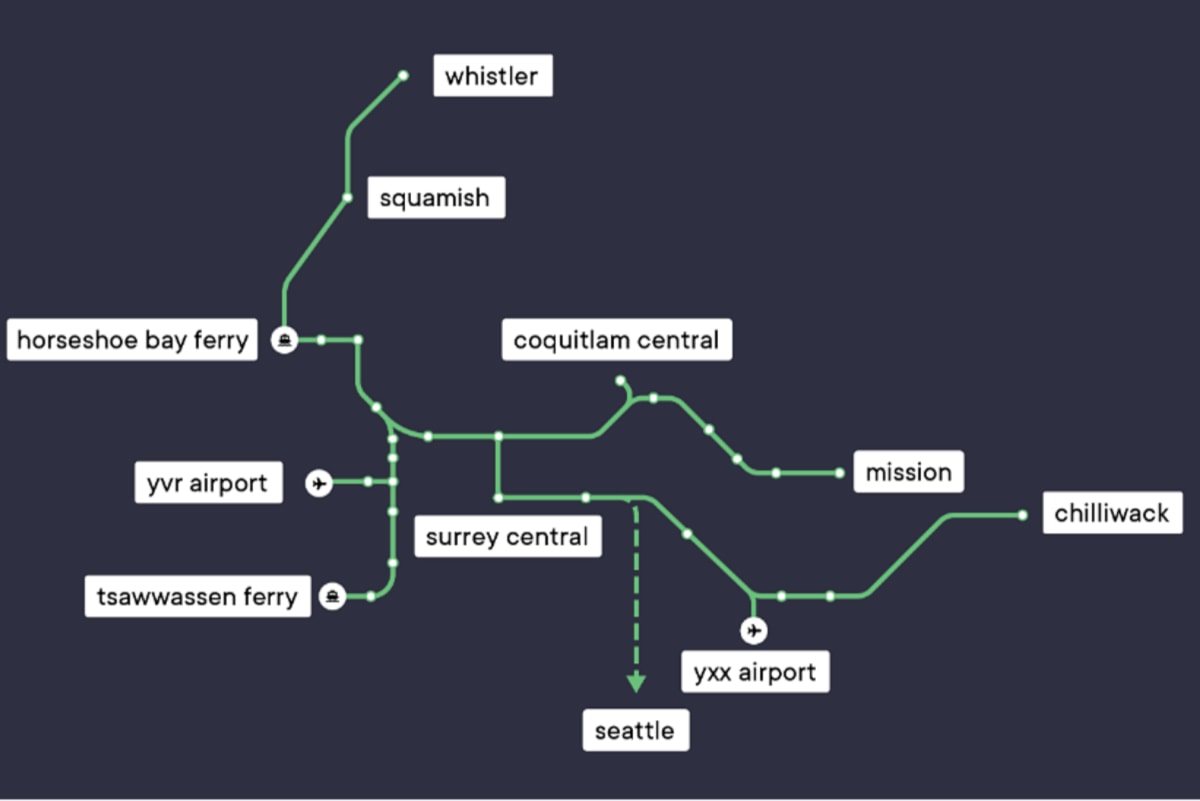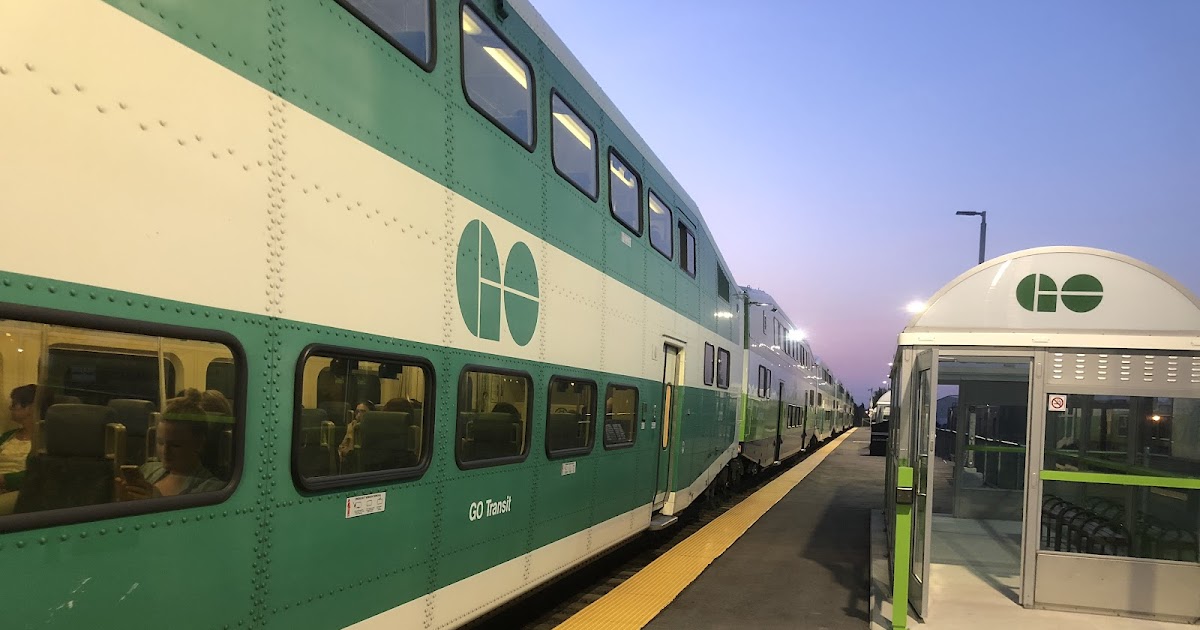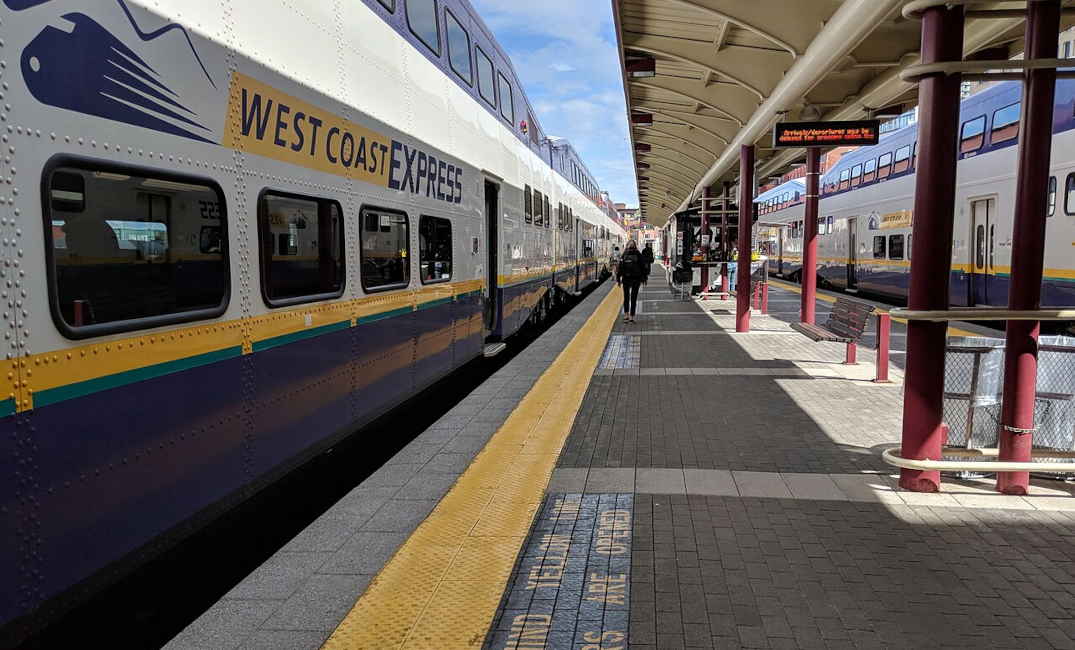Table of Contents
Overview
An ambitious $10 billion plan to revolutionize transit in Metro Vancouver and the Fraser Valley through a new regional rail network is gaining attention, with advocates recently seeking support from Langley Township council.
The proposed Mountain Valley Express (MVX) Nexus would create a 350-kilometer rail system connecting communities from Whistler to Chilliwack, aiming to provide a fast, frequent and environmentally-friendly alternative to car travel.

Dramatic Potential Reductions to Commute Times
For residents of Langley, the MVX Nexus vision offers the tantalizing prospect of drastically reduced travel times to key destinations across the region.
According to Lee Haber, director of strategy and partnerships for the non-profit MVX Collective Society, travel from the proposed Carvolth station in Langley to Vancouver International Airport would take just 35 minutes.
Connections to the Tsawwassen Ferry Terminal (44 minutes), Horseshoe Bay (37 minutes) and even Whistler (1 hour 44 minutes) would also be possible.
The case for a regional rail system
"Regional Rail makes sense for Metro Vancouver, and it especially makes sense for the Township of Langley," Haber told Langley council members at a recent meeting. He highlighted how the project could help address challenges like traffic congestion, housing affordability, and access to jobs across the region.
The proposed network would include 35 stations acting as community hubs, with trains capable of speeds up to 160 km/h running frequently throughout the day.
For Langley, the initial phase envisions tracks running in the median of Highway 1, with a stop at the existing Carvolth park-and-ride.
While the price tag is steep - estimated between $7.8 billion and $9.6 billion - advocates argue it's a necessary investment to achieve regional economic and environmental goals. They point to similar-sized cities like Brisbane, Australia, which boasts a 689 km regional rail network.
"It's not going to be cheap," Haber acknowledged to Langley council. But he outlined potential funding sources including federal infrastructure programs, private sector investment, and "land value capture" mechanisms that could leverage increased property values near stations.
The proposal comes as TransLink, Metro Vancouver's transit authority, aims to achieve parity between sustainable transportation modes and driving by 2050.
Currently, the ratio of car trips to transit trips stands at 5-to-1.
MVX proponents argue that while SkyTrain expansions are positive, a regional rail network is needed to truly compete with driving times across longer distances.
For working families in Langley struggling with high housing costs and long commutes, the MVX Nexus could open up new possibilities. Faster connections to job centers across Metro Vancouver might allow more residents to access employment opportunities while maintaining roots in their community.
The project also aims to spur transit-oriented development around stations, potentially increasing housing options.
Challenges Ahead
However, the vision faces significant hurdles before becoming reality. MVX is seeking endorsements from local councils like Langley Township's to build momentum, asking them to sign an open letter urging TransLink and the provincial government to study regional rail corridors and preserve land for future stations. Langley City Council signed the open letter in May 2024.
Langley Township council members raised questions about the project's overlap with other rail proposals and its funding model.
Mayor Eric Woodward noted the council would want to review the full open letter before deciding whether to endorse it.
Readers who would like to support the project are encouraged to contact Mayor Woodward and other members of the Langley Township Council.
What's next?
For now, the MVX Nexus remains more vision than reality. But its proponents argue that thinking big about regional transit is crucial for Metro Vancouver to remain competitive globally and meet its sustainability goals.
"Our competition is fierce and if we want to remain relevant globally, we need to invest in our future beyond highway expansion and express buses," states an MVX report. "When using innovative construction methods, project management and tendering best practices, a network like MVX Nexus, and a greater region, is within reach."
As communities like Langley weigh whether to support further study of the concept, the debate highlights broader questions about the region's transit future.
How can rapidly growing suburban areas be better connected to urban job centers? What level of investment in sustainable transportation is needed to meaningfully reduce car dependency? And how can major infrastructure projects be planned and funded in ways that benefit working families and support community development?
While the answers remain unclear, the MVX Nexus proposal has succeeded in sparking important conversations about long-term regional planning.
For residents of Langley and beyond, it offers a glimpse of a possible future where high-speed rail shrinks distances across the Lower Mainland, opening up new possibilities for work, housing and community connections.
Whether that vision becomes reality will depend on building broad public and political support - a process that is only just beginning. But for a region grappling with affordability challenges, congestion woes and ambitious climate goals, bold thinking about transit may be exactly what's needed.
Resources and Further Reading




Please let us know what you thought of this article!





